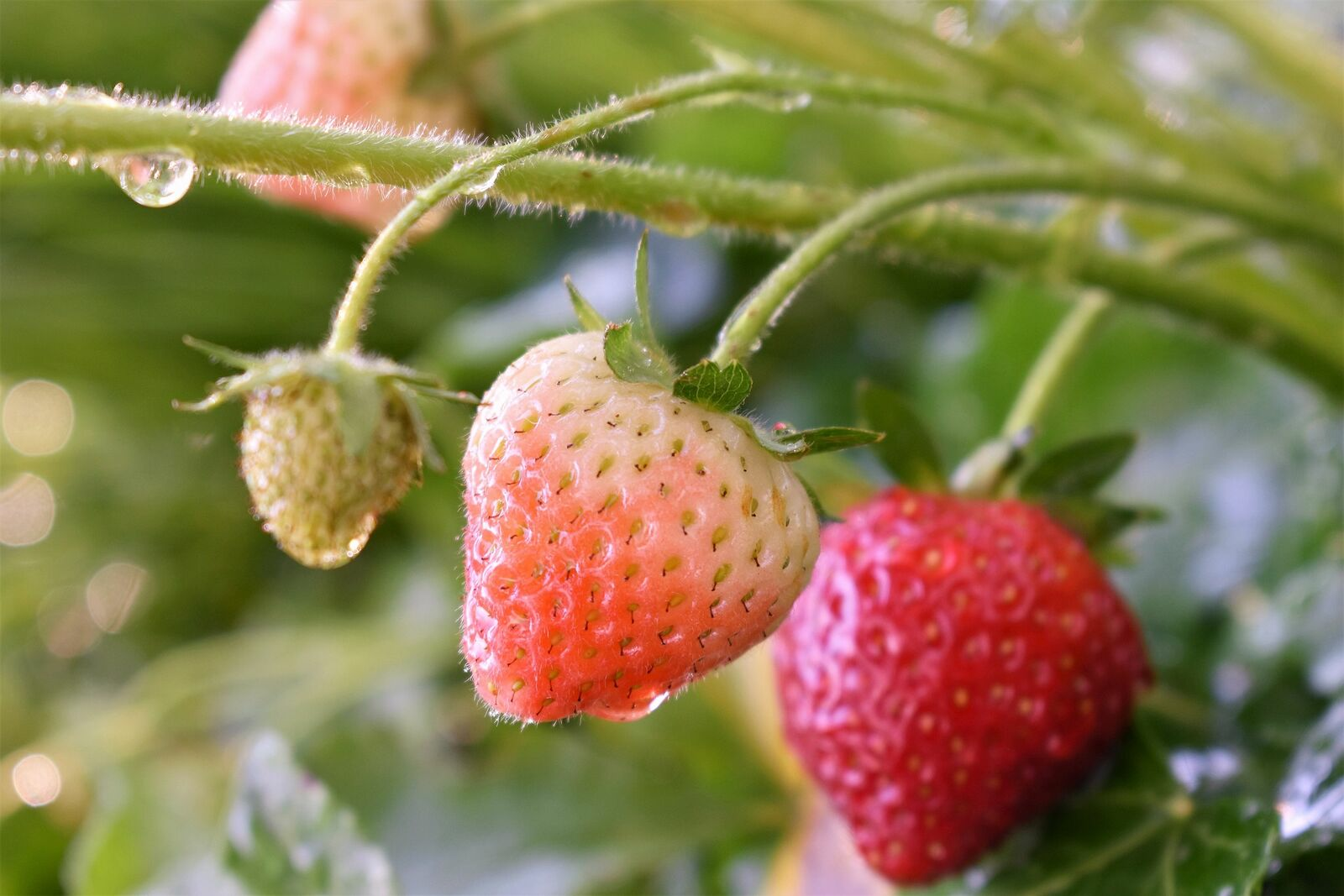
Fertilizing Strawberries: Home Remedies & Natural Fertilizers at a Glance
Fertilization is essential so that you can expect a rich harvest from your strawberry plants. Strawberries differ in their nutrient requirements from other crops in your garden, so it's important to know a few things. We give you tips on fertilizing strawberries with organic fertilizers. You can find out which fertilizers are suitable here in this article.
This Article Contains:
- How to Fertilize Strawberries
- Which Fertilizer Is Suitable for Strawberries?
- Fertilize Strawberries With Compost: What You Need to Keep In Mind
- Fertilizing Strawberries With Horn Shavings
- Fertilize Strawberries With Horse Manure
- Tomato Fertilizer for Strawberries
- DIY Fertilizer: Homemade Remedies & Natural Fertilizers
- When to Fertilize Strawberries?
- Frequently Asked Questions About Fertilizing Strawberries
Quick Overview
How and When to Fertilize Strawberries
- Strawberries mainly need phosphorus and potassium, but also nitrogen for good growth. If they are over-fertilized with nitrogen, they become more susceptible to diseases.
- The right time to fertilize: During planting and in autumn after the last harvest in the second year; for everbearing strawberry varieties, additionally fertilize several times during the growing season (approx. every 4 to 6 weeks).
Homemade Remedies and Other Fertilizers for Strawberries
- Compost: Good basic fertilizer when planting
- Horn shavings: Nitrogen-based fertilizer as a good supplement to compost, which you can spread over several doses
- Tomato fertilizer: Is very suitable for fertilizing strawberries, as tomatoes have similar nutrient requirements.
- Coffee grounds: Contains small amounts of nutrients and is therefore more suitable for top dressing during the season.
- Nettle manure: Only use moderately when there is no fruit on the plant yet, otherwise it will take on the taste of the liquid manure.
How to Fertilize Strawberries
For healthy growth, strawberry plants primarily require the main nutrients nitrogen, phosphorus and potassium. Calcium, magnesium and trace elements such as iron, boron, manganese and zinc are also essential in comparatively small quantities. Compared to most other crops that you probably grow in your garden, strawberries have a low nitrogen requirement. If they are over-fertilized, they react with excessive leaf growth at the expense of flower and fruit formation. They also become more susceptible to disease! This does not mean that they do not need nitrogen fertilization at all, but only in moderation. Much more important are nutrients such as potassium and phosphorus, which are very important for flower and fruit development and the quality of the fruit. For this reason, it is particularly important with strawberries to know which fertilizers you can use and how often you should fertilize.
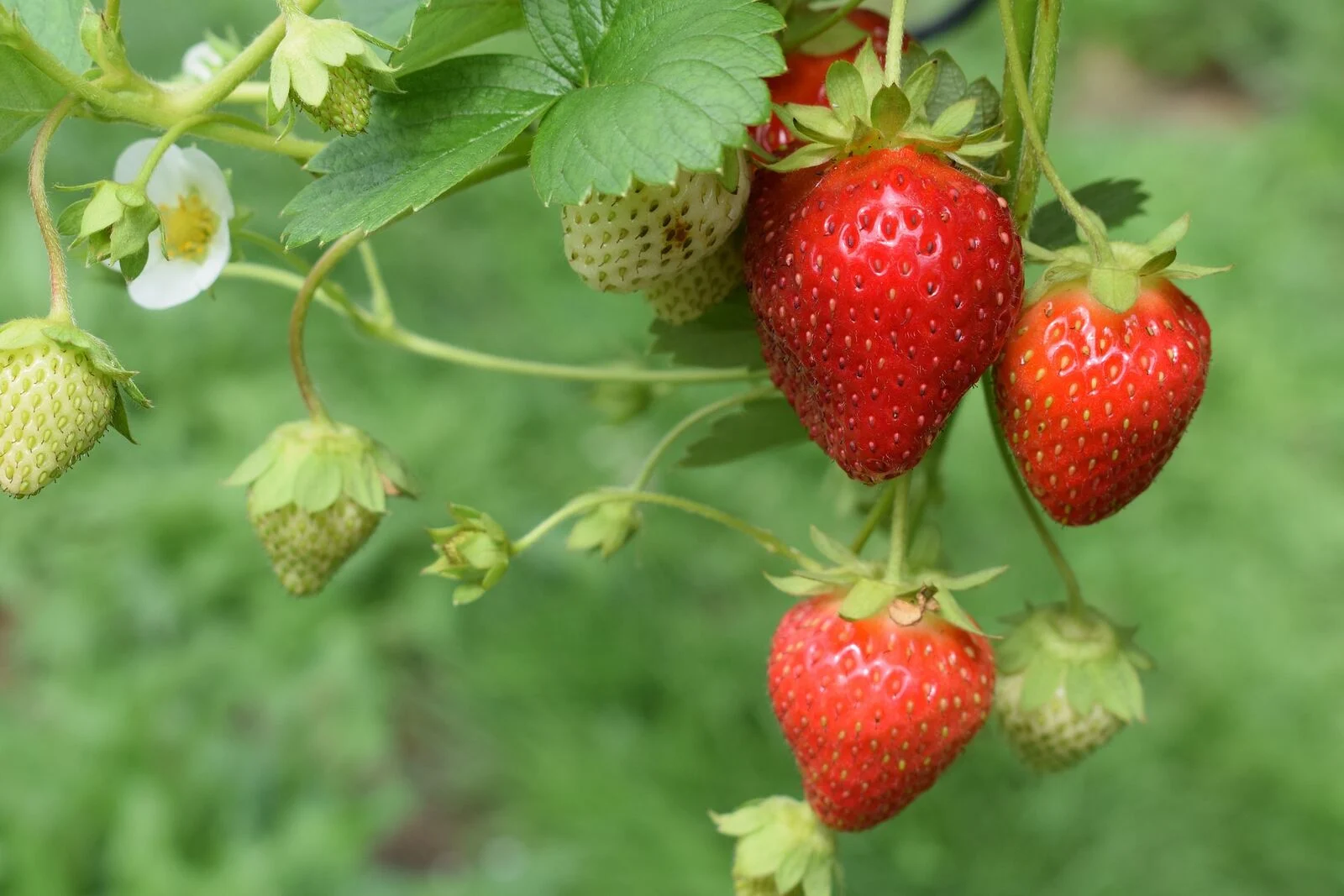
Which Fertilizer Is Suitable for Strawberries?
To fertilize your strawberries, you should use slow-release organic fertilizers. Organic fertilizers have several advantages, as they not only nourish your plants, but also the soil life. They promote the build-up of humus and thus help to improve the soil structure and therefore the availability of nutrients and water retention capacity. Organic fertilizers also act as slow-release fertilizers, as the nutrients are metabolized by soil life over time and gradually made available to the plants. In order for the fertilizer to work well, you should always work organic fertilizers well into the soil, unless they are applied in liquid form. In addition, a regular supply of water is very important after a fertilizer application so that the plants can also absorb the nutrients through their roots.
Mineral fertilizers, on the other hand, are known to have some negative effects on the environment. The easily soluble nutrient salts are very mobile in the soil. This means that although mineral fertilizers have a rapid fertilizing effect, they are also easily washed out and can therefore pollute the groundwater. In addition, they are not suitable for fertilizing salt-sensitive plants such as strawberries. Strawberries naturally grow in locations with a low mineral content and light, humus-rich soils. Strawberry plants react to small amounts of salt with discoloration of the leaves or even death and reduced growth. For this reason, we recommend that you make or buy your own natural fertilizers for sustainable gardening. If you would like to read more about Natural and Organic Fertilization, take a look at our article on the subject.
Fertilize Strawberries With Compost: What You Need to Keep In Mind
Compost is a well-known organic fertilizer and you are probably wondering whether you can fertilize your strawberry plants with compost. It is very difficult to give a general answer here, as the composition of compost varies greatly depending on what organic material you use in the compost.
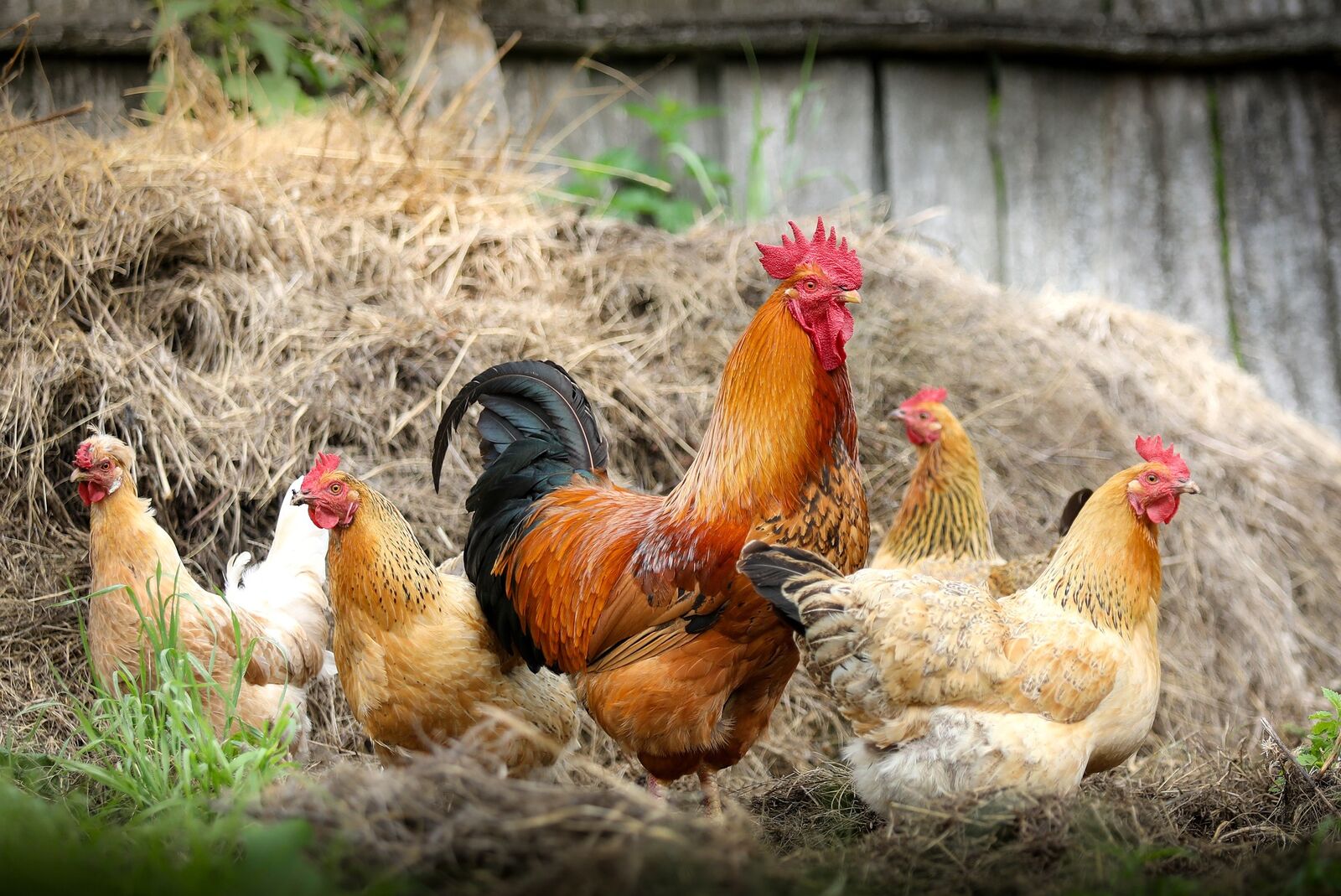
The composition of your compost depends primarily on whether you add plant or animal matter to the compost. Animal waste in the form of manure usually causes the salt concentration in the compost to increase and should only be used with caution (especially chicken manure!). This is not so good for strawberries, as the proportion of water-soluble salt may then be too high and your plants will suffer as a result. In contrast, compost from green waste or organic waste contains fewer nutrient salts, although it still contains a significant amount. We therefore recommend using compost as a basic fertilizer, which you can work into the soil when planting or a few weeks later. Around 3 to 5 L/6 to 10.5 L of compost per m2/1.2 yd2 is sufficient.
Compost is quite balanced in terms of nutrients and contains nitrogen, phosphorus, potassium and trace elements. Compared to other organic fertilizers, the nitrogen content is significantly lower and only slowly available to plants. On average, green waste compost contains less nitrogen, phosphorus and potassium than compost from organic waste. With a basic fertilization with compost, your newly planted strawberry plants will be well supplied with the main nutrients phosphorus and potassium as well as trace elements and these will usually last until after the second harvest. Only nitrogen should be added moderately with horn shavings or other organic fertilizers if necessary. It is important that all composts are well matured. This ensures that all pathogens in the compost are killed and do not damage your plants.
Fertilizing Strawberries With Horn Shavings
Horn shavings or horn meal is an organic fertilizer that is rich in nitrogen. In contrast, other main nutrients such as potassium and phosphorus are only present in very small quantities. Therefore, horn shavings are not suitable as the sole fertilizer for strawberries. However, if you have made a basic fertilization with compost, you can use horn shavings to add nitrogen. Due to their slow effect, the strawberry plants are evenly supplied with nitrogen, which reduces the risk of over-fertilization. Another point to bear in mind is that horn meal slightly acidifies the soil. However, this is not a problem with strawberries, as they like to grow in slightly acidic soil anyway.
Recommendation for Fertilizing With Horn Shavings:
| Timing of Fertilisation | Amount of Horn Shavings per m2/1.2 yd2 |
|---|---|
| During or after planting | 35 g/1.2 fl. oz. |
| In spring of the second year (only for light soils or deficiency symptoms) | 15 g/33 fl. oz. |
| In autumn after the harvest | 30 to 35 g/1 to 1.2 fl. oz. |
Source: https://lwg.bayern.de/mam/cms06/gartenakademie/dateien/erdbeere_duengung_infoschrift_3202.pdf
Fertilize Strawberries With Horse Manure
If you want to use manure as a fertilizer, you should note that there are big differences in the composition depending on the animal species.
- Horse manure, for example, contains comparatively little potassium in contrast to other animal manure and also has relatively little nitrogen and phosphorus. Fertilizing with horse manure alone would probably not be enough and you should mix it with other organic fertilizers such as compost and horn shavings.
- The same applies to cattle manure: high potassium content with a relatively low nitrogen and phosphorus content. However, cattle manure has the advantage that it has a low salt content, which is beneficial for strawberries.
- Pig manure has a fairly balanced composition of phosphorus, nitrogen and potassium and also contains quite a lot of magnesium.
- Chicken manure has a very high nitrogen content, while potassium and phosphorus are present in lower proportions. In addition, chicken manure has many water-soluble salts, which is why it is rather unsuitable for strawberry plants.
Of course, these contents depend heavily on the feed and vary greatly, which is why it is not quite so easy to fertilize according to requirements. It is best to always supplement manure fertilizer with suitable other organic fertilizers for a good nutrient supply. In general, however, manure can have a positive effect on the soil structure (similar to compost) and provide your plants with nutrients in the long term. However, you should not use fresh manure as fertilizer if your plants are already on the bed. This would damage the plants. Either work in the manure in the fall before planting in the spring. Or you can use dried manure in the form of pellets. This also has the advantage that spreading is much more convenient and you can easily work the pellets into the soil. The last option would be to compost the manure. However, as already mentioned, you must fertilize carefully, as compost contains more nutrient salts, which may not be good for the strawberry plants.

Any Further Questions?
To exchange ideas with other gardeners and benefit from their experiences, you can visit our Fryd-Community. Perhaps someone has already grown strawberries for a while and can give you some tips.
Join Community NowTomato Fertilizer for Strawberries
Tomatoes and strawberries have similar nutrient requirements, so special tomato fertilizers are very suitable for your strawberry plants. These fertilizers usually contain more phosphorus and potassium than fertilizers for vegetable plants. In addition, tomato and berry fertilizers often also contain a small amount of magnesium, which also has a positive effect on the quality and growth of the fruit. So if you have little experience with organic slow-release fertilizers and are afraid of over-fertilizing, we recommend buying this fertilizer. The packaging will tell you exactly how to apply the fertilizer so that you don't over-fertilize and your plants are well cared for. Make sure it is of good quality, preferably organic, so that the fertilizer does not contain any harmful residues.
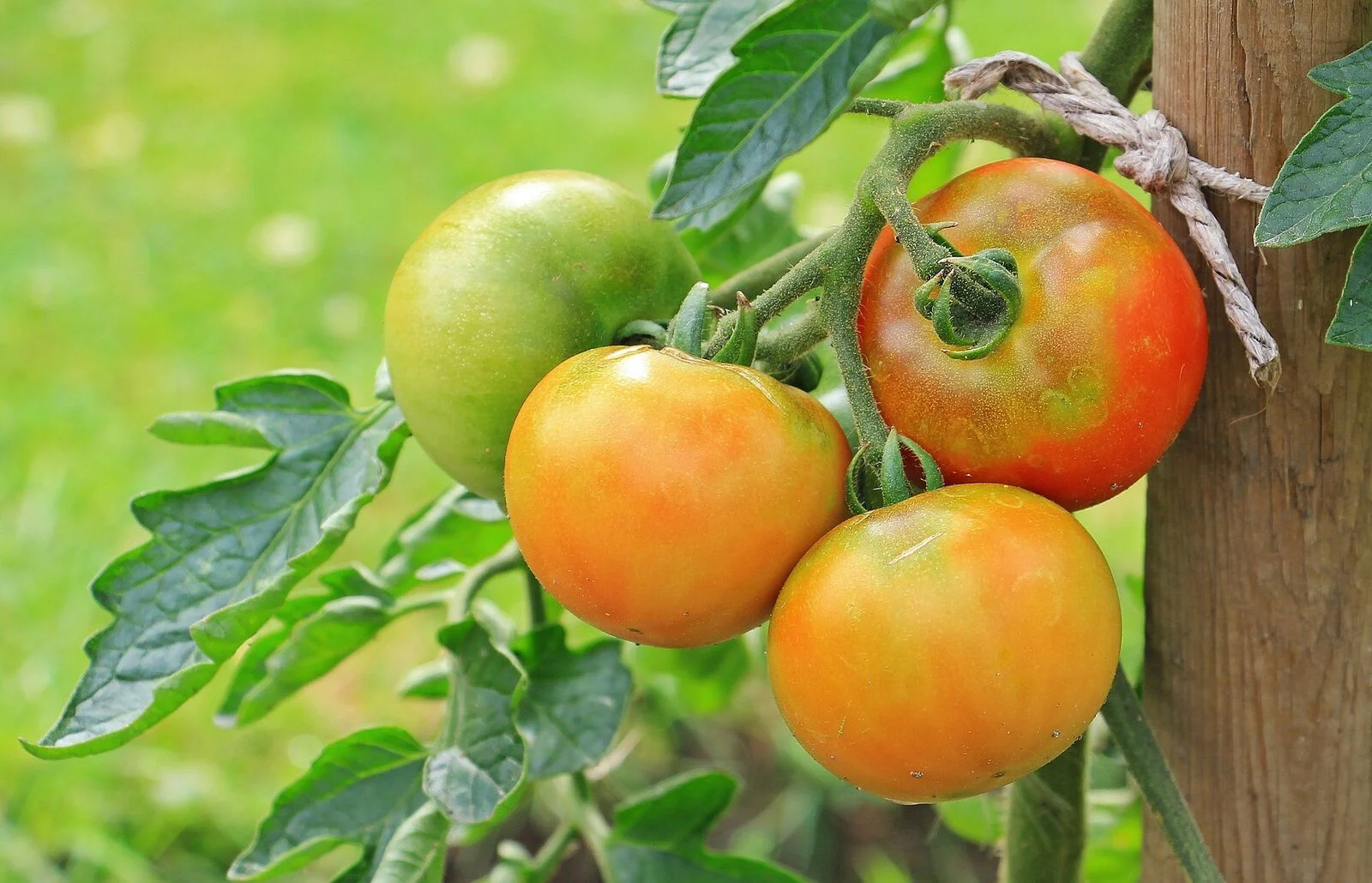
DIY Fertilizer: Homemade Remedies & Natural Fertilizers
In addition to fertilizers that you can buy, there are also some home remedies and fertilizers that you can easily make yourself at home. These include coffee grounds fertilizer or plant dips made from nettles. You can also make compost in your own garden and easily create Your Own Compost. If you don't have the space for this, you can also set up a Bokashi Bucket in the kitchen to produce your own organic fertilizer.
Coffee Grounds as Fertilizer for Strawberry Plants
Coffee grounds are a widely used household remedy. These contain the main nutrients in a more appropriate ratio, although nitrogen still dominates. However, these nutrients are generally only present in very small quantities. Therefore, coffee grounds are more suitable for fertilizing during the season if you notice deficiency symptoms. Coffee grounds also have an acidic effect on the soil, but this is more of an advantage for strawberries. For many other crops, however, coffee grounds should be used with caution. If you want to fertilize your strawberries with coffee grounds, you should dry them well first. Otherwise, you run the risk of mold forming in the soil. Then mix the coffee grounds with water in a ratio of 1:1 and water the plants with it.
Fertilize Strawberries With Nettle Slurry
Nettle liquid manure is also a good organic liquid fertilizer that contains a lot of nitrogen, potassium and silicic acid. You can therefore also use nettle liquid manure to give your plants a boost during growth. The silicic acid also strengthens your plants, making them more resistant to fungal diseases and pests. Here too, however, the exact composition is unknown, which is why you should not rely solely on nettle manure to fertilize your strawberries. You should also be aware that liquid manure can have a negative effect on the taste of your fruit. Therefore, only fertilize with nettle slurry as long as there is no fruit on the plant. You can find out How to Make and Use Your Own Nettle Slurry in this article.
When to Fertilize Strawberries?
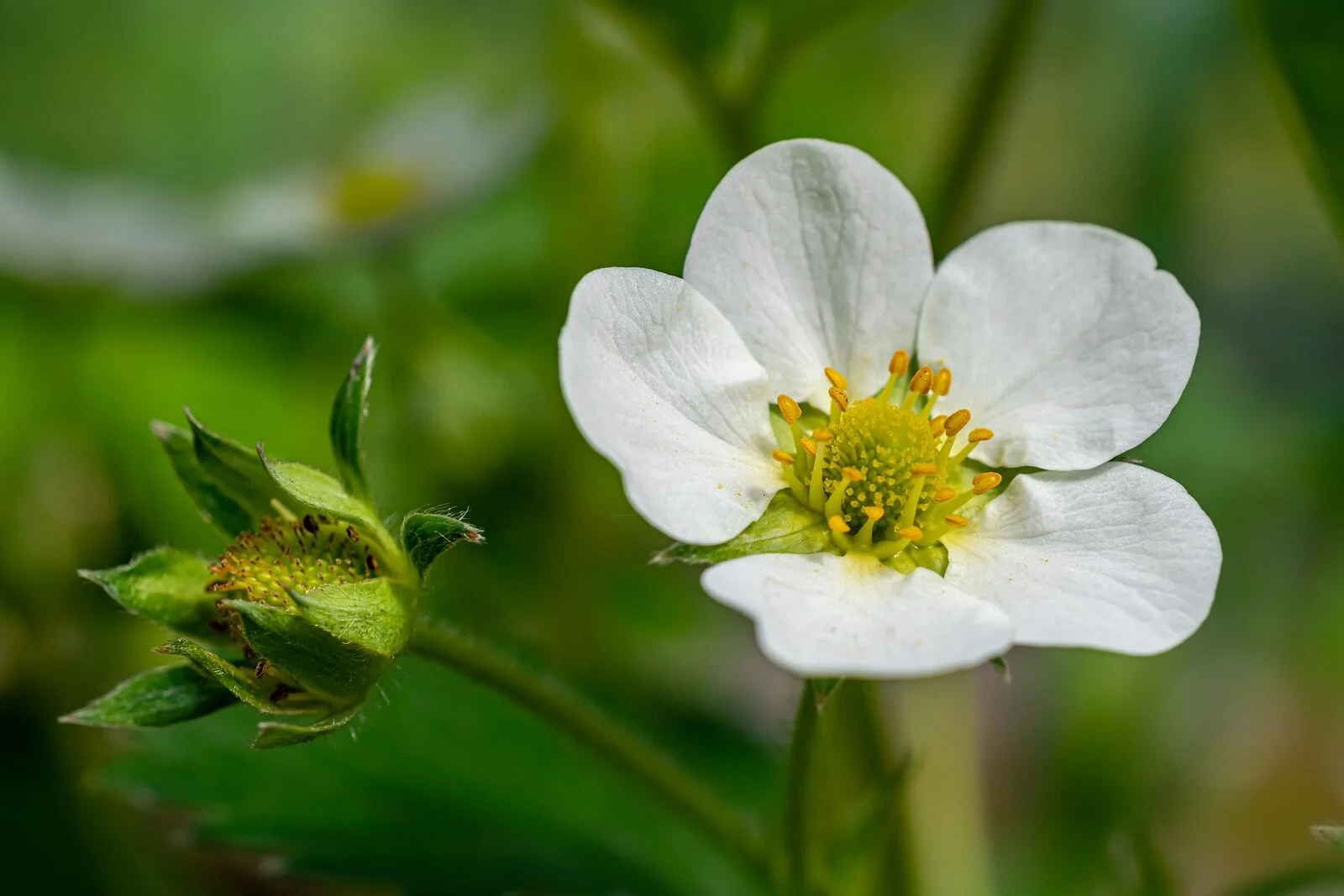
In general, fertilizing strawberries is often divided into several applications. As strawberries are perennial plants, they are usually fertilized about once or twice a year. However, this can vary slightly depending on the strawberry variety, as everbearing varieties may need a little more fertilizer than single-bearing strawberries. The first fertilization is applied in spring when the plants are planted. Normally, the amount of organic fertilizer is then sufficient for the entire year. If you have a very sandy, light garden soil or notice signs of deficiency, you can fertilize again in the spring of the second year. Otherwise, it is sufficient to apply fertilizer again in the autumn after the harvest in the second year. A good supply of nutrients is particularly important after the harvest, as this is when the plant forms new flower buds for the following year.
Fertilizing Single-Bearing & Everbearing Strawberry Plants: The Right Time
When fertilizing single-bearing and everbearing varieties, the timing and frequency are different. This is because everbearing varieties have a higher nutrient requirement due to the constant production of fruit.
- Single-bearing strawberries are usually only fertilized once in midsummer after the last harvest. For these varieties, it is important to fertilize in autumn and not in spring. Spring fertilization has little effect on your harvest, as the flower buds of the strawberries are already laid in the previous autumn before the winter dormancy. To ensure that the plant is well supplied with nutrients, you should ensure a good water supply.
- Everbearing strawberry varieties are also fertilized several times during the growing season. Start by fertilizing in spring with slow-release organic fertilizer and then provide the plants with organic liquid fertilizer at regular intervals if necessary. You can then apply fertilizer approximately every 4 to 6 weeks. Even after the last harvest, they will appreciate a fertilizer application with organic slow-release fertilizer such as horn shavings. Keep a close eye on your plants and react if you notice any deficiency symptoms. But don't over-fertilize either, as this will make the strawberries more susceptible to disease.
Examples of popular strawberry varieties and a List of Single-Bearing and Everbearing Varieties can be found in this article.
If you have any questions or comments, please write to us at [email protected] or share your experiences with us on social media.
Would you like to receive helpful gardening tips all year round and plan your own beds optimally? Then register here or download the Fryd app for Android or iOS.
Fryd - your digital bed planner
Cover picture by Pitsch on Pixabay.

Marie
Marie is an agronomist. She is particularly interested in the sustainable and organic cultivation of vegetables and other plants. In her own garden, she gained experience and likes to try things out to learn from nature. She is particularly interested in the values and principles of permaculture, in order to contribute not only to the well-being of nature, but also to the well-being of people and future generations.
Learn MoreCurrent Topics in the Community
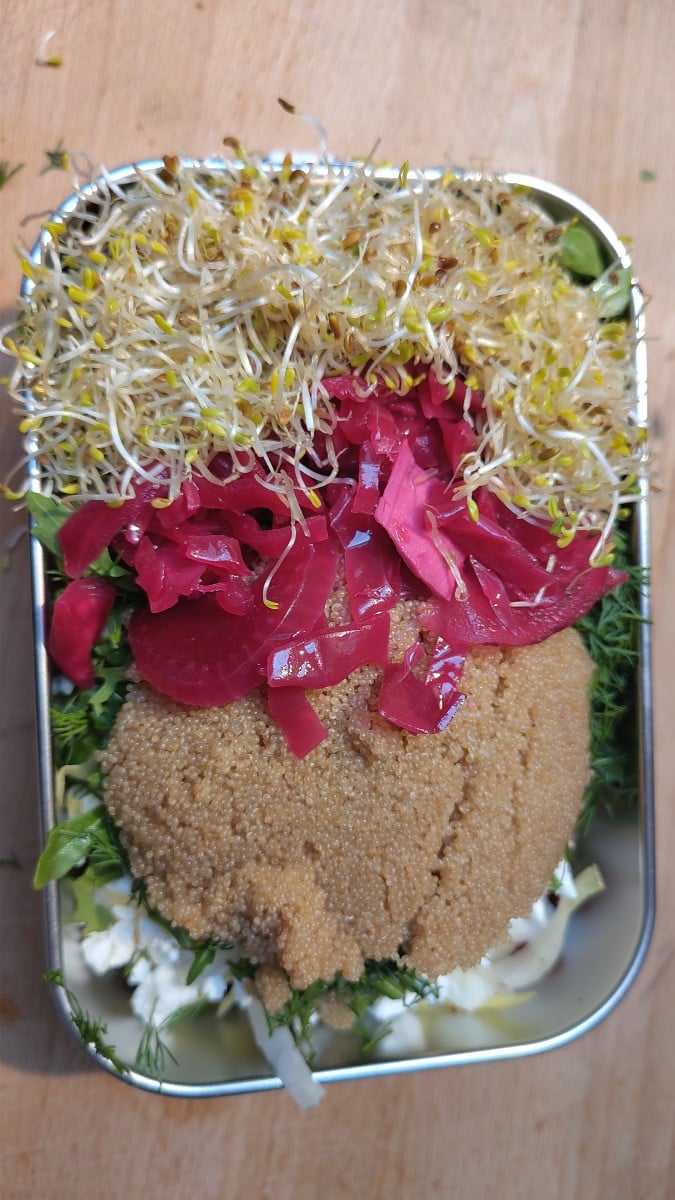
Liked 3 times
Although temperature is no longer the main topic here, I can wholeheartedly recommend fermented foods, if only for their color. The red one is a fermented mixture of fennel bulb, horseradish, radish, and a little red cabbage. I look forward to it every time I prepare my salad for work.
Show 1 answer
Liked 3 times
Good morning 😊 I was just on Instagram and saw a post there. Someone was complaining that food and other things have become so expensive. That's when I thought of you. We, our gardening community, are really clever. For example, last year I had an insane amount of currants. Of course, you could also buy currants in the store at that time. When I looked at them out of pure curiosity, I was shocked. A small bowl was really expensive. And I think you do the same as me: you freeze fruit and vegetables that you have too much of for later, or you turn them into jam, jelly, or something else. That saves a lot of money and you know what you're eating.
Show 8 answersLiked 2 times
I had actually hoped to harvest a few more sprouts from my FlowerSprouts plants after the frost, but all the plants have rotted from the bottom up and two have fallen over😭. On top of that, the stems and most of the sprouts have been nibbled by some kind of rodent😭. Does anyone have any experience with the frost hardiness of this variety?
Show 1 answerPopular Articles
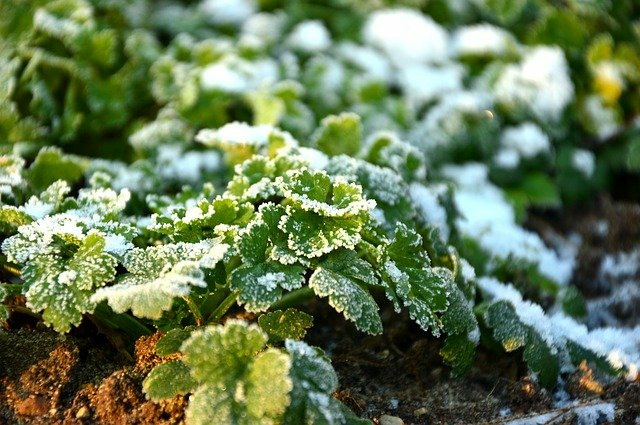
Overwintering Parsley: How to Do It Successfully
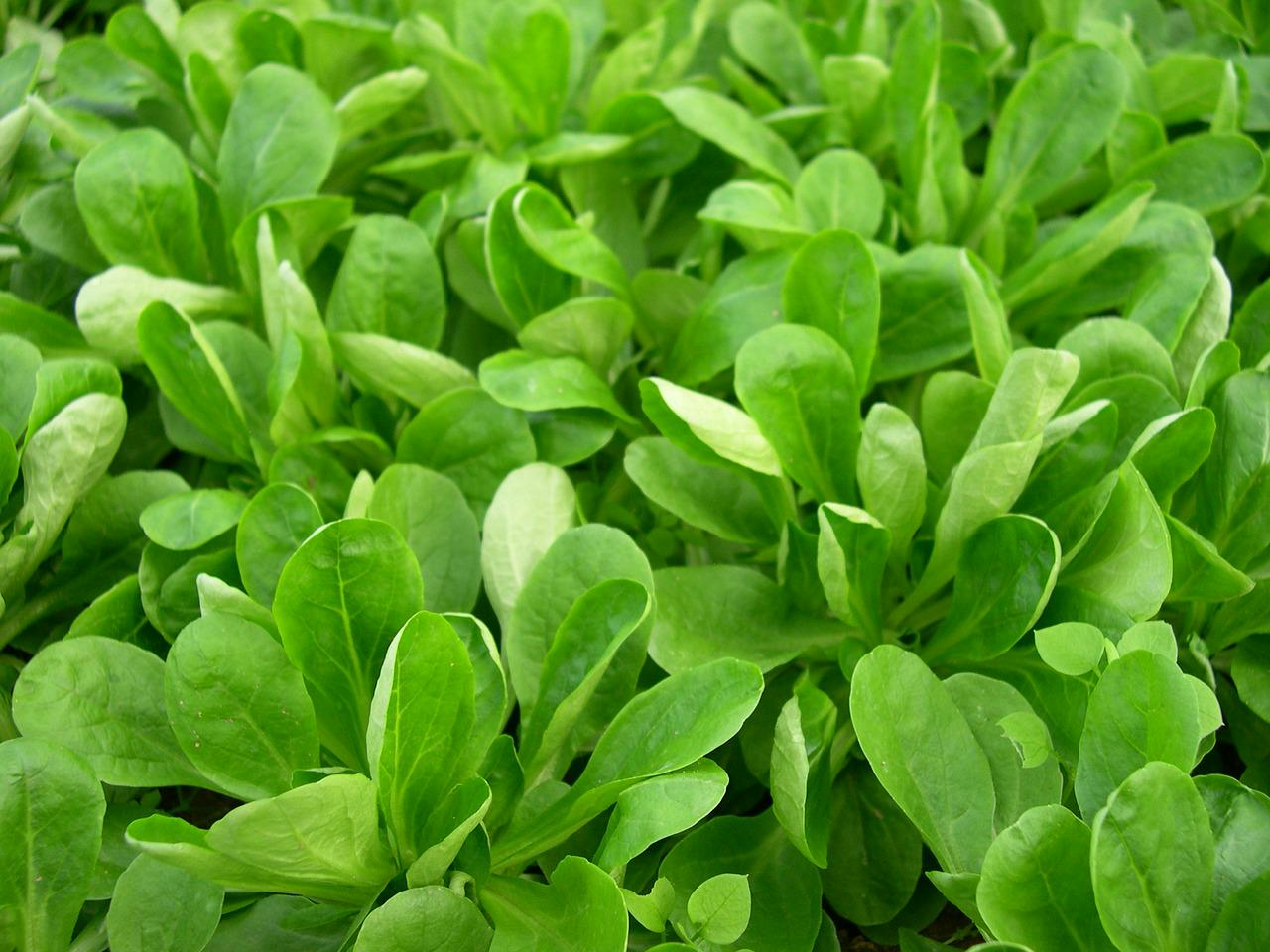
How to Grow Lettuce in Winter: Varieties, Sowing, Harvesting

Growing Sage Plant: Tips for Sowing and Harvesting
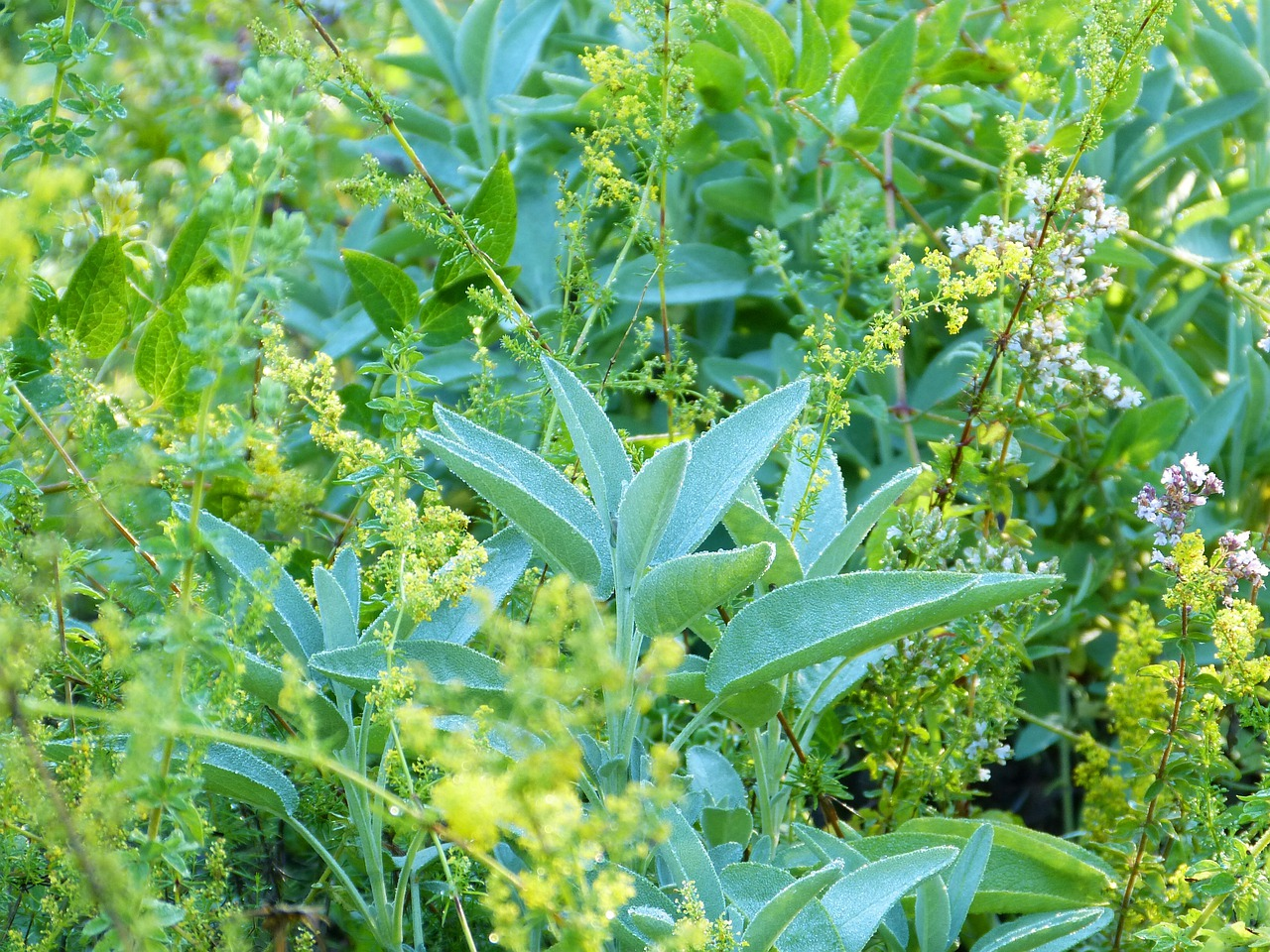
What Herbs Can Be Planted Together?
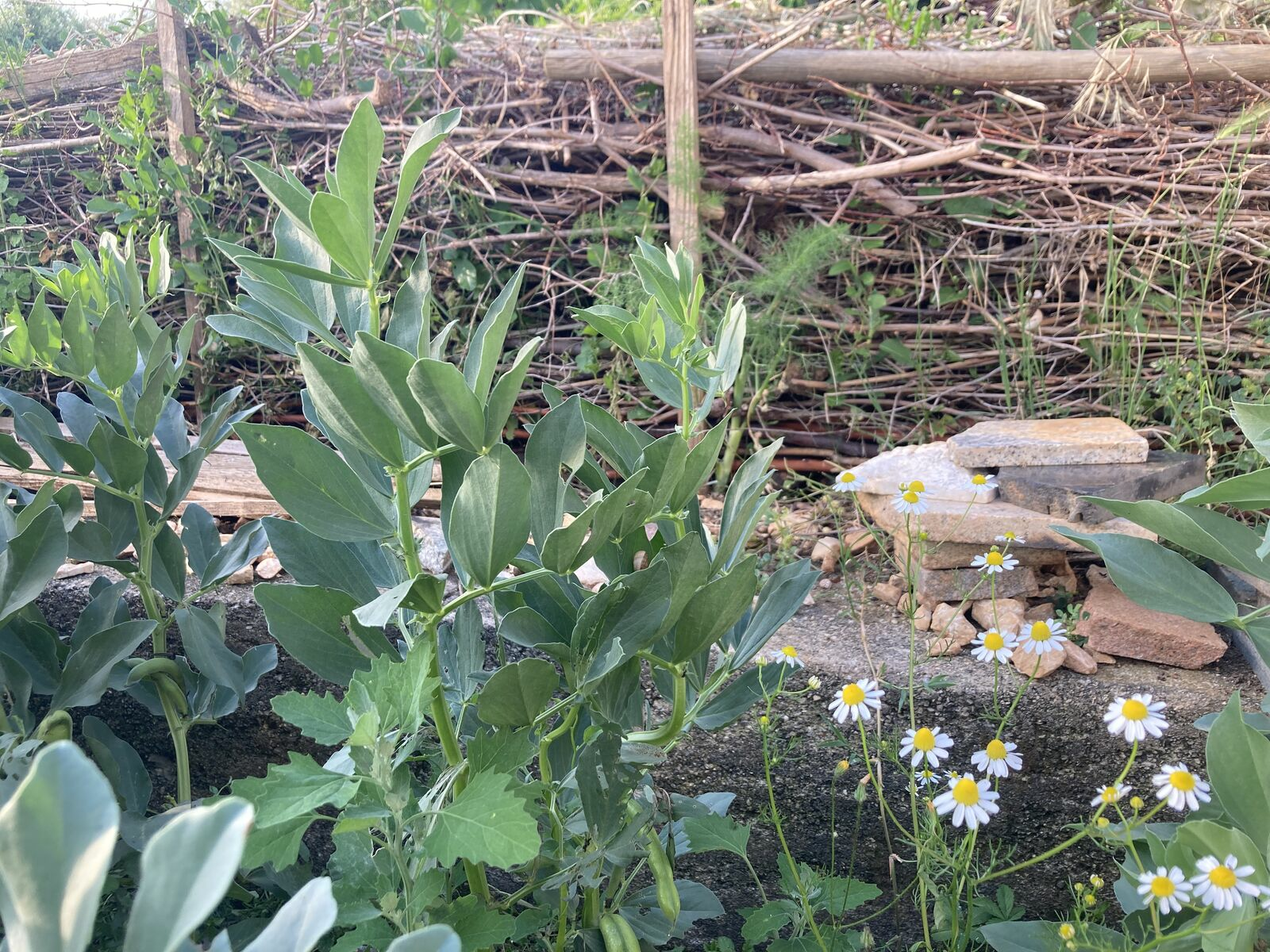
Create & Design a Permaculture Garden
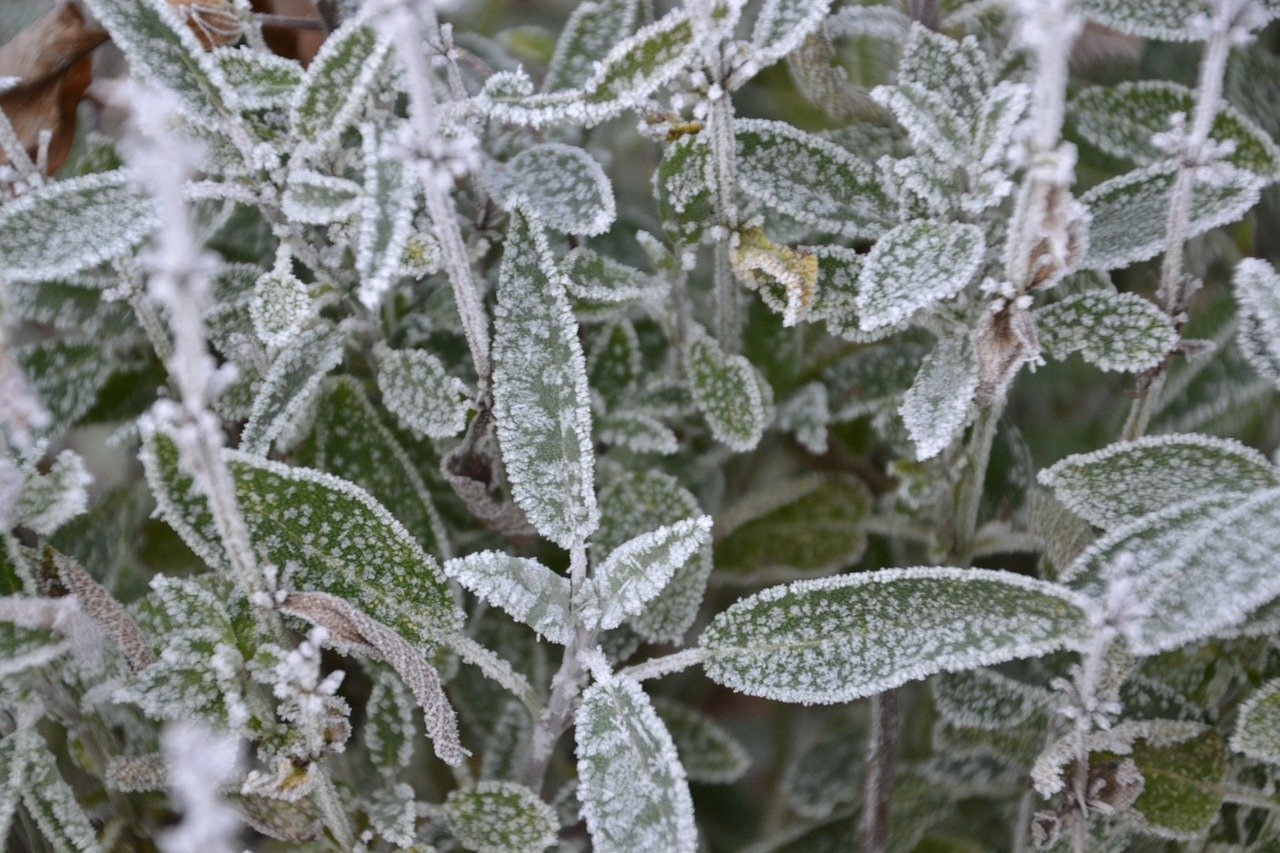
Overwintering Plants: Tubs, Pots and Raised Beds

Pruning, Fertilizing & Propagating Currants: Care Tips
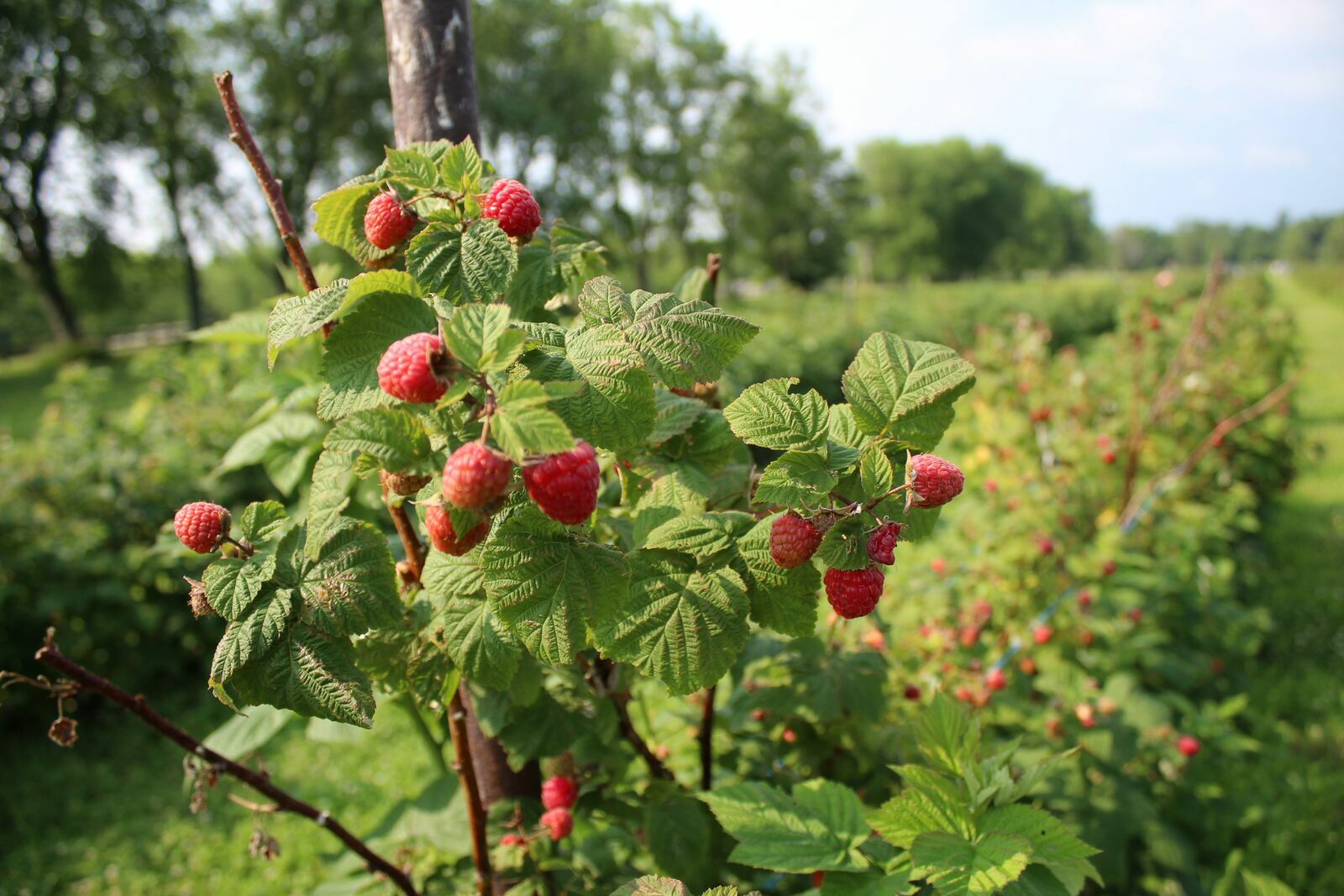
Pruning Raspberries: How to Do It
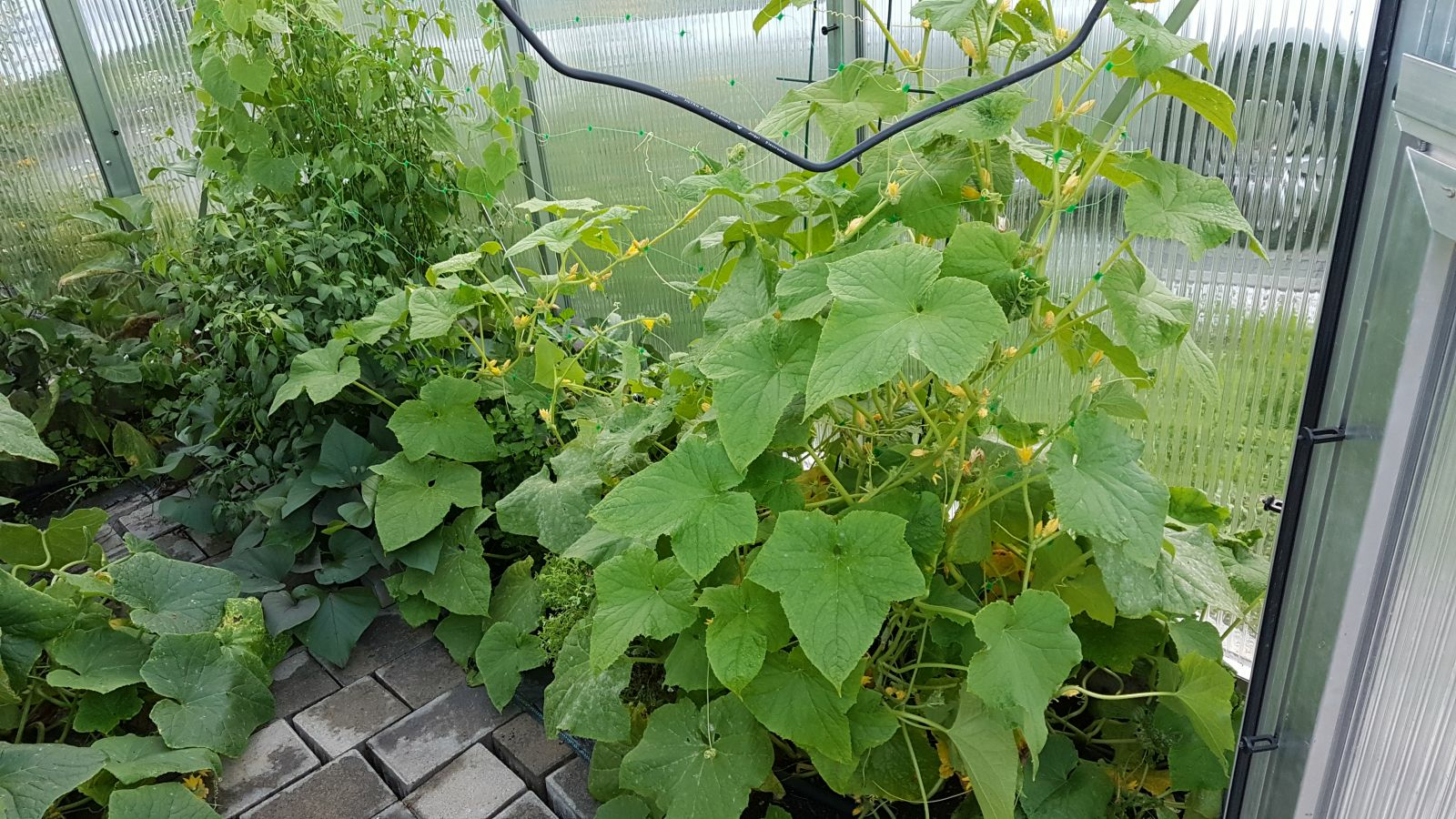
Vegetable Garden With Greenhouse: How to Use Greenhouse Effect
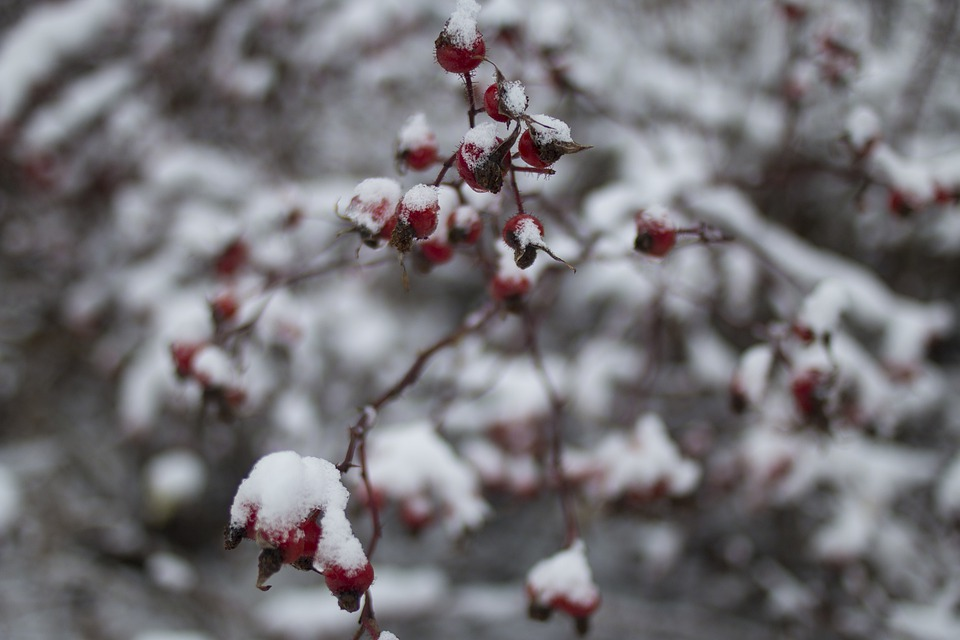
Winterizing Beds and the Garden: How to Do It
FAQ
Which fertilizer for strawberries?
Strawberries mainly need a lot of potassium and phosphorus, but relatively little nitrogen. A tomato fertilizer with a suitable nutrient profile is therefore very suitable. Alternatively, you can also mix organic fertilizers such as compost, horn shavings, manure, coffee grounds or plant dips.
What is the best fertilizer for strawberries?
The best fertilizer is special berry and tomato fertilizer, as the nutrient composition is clear and you will already find quantity information on the packaging. With organic fertilizers, the nutrient composition varies, which can be a challenge.
When is the best time to fertilize strawberries?
Strawberries are best fertilized the first time they are planted. Depending on the strawberry variety, it is advisable to fertilize again in spring and during the season (multiple-bearing varieties). Otherwise, you should fertilize again in the autumn of the second year after the last harvest.
How often to fertilize strawberries?
The frequency depends a little on the variety. Fertilize single-bearing varieties once or twice a year. You should also fertilize multiple-bearing varieties about every 4 to 6 weeks during the growing season.